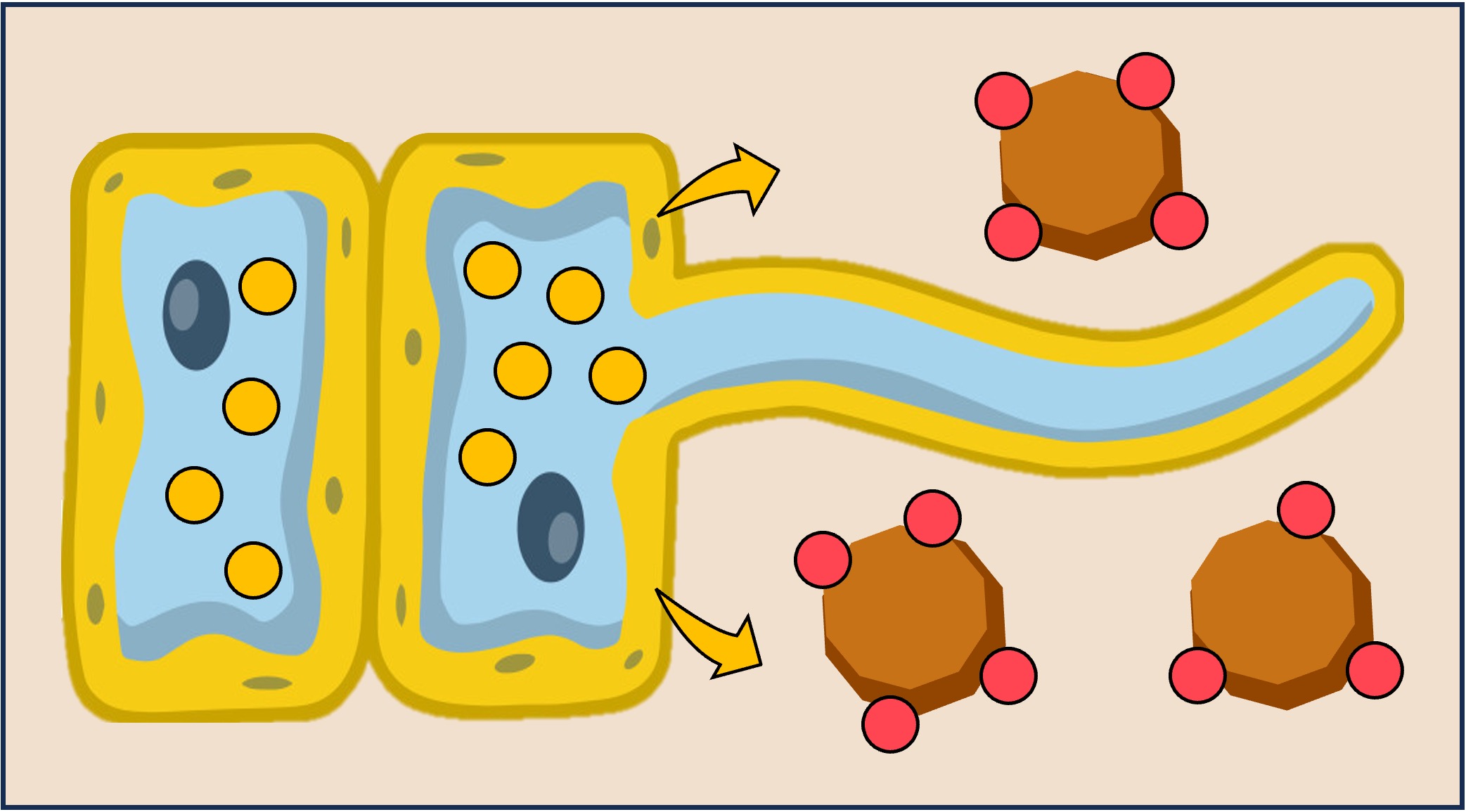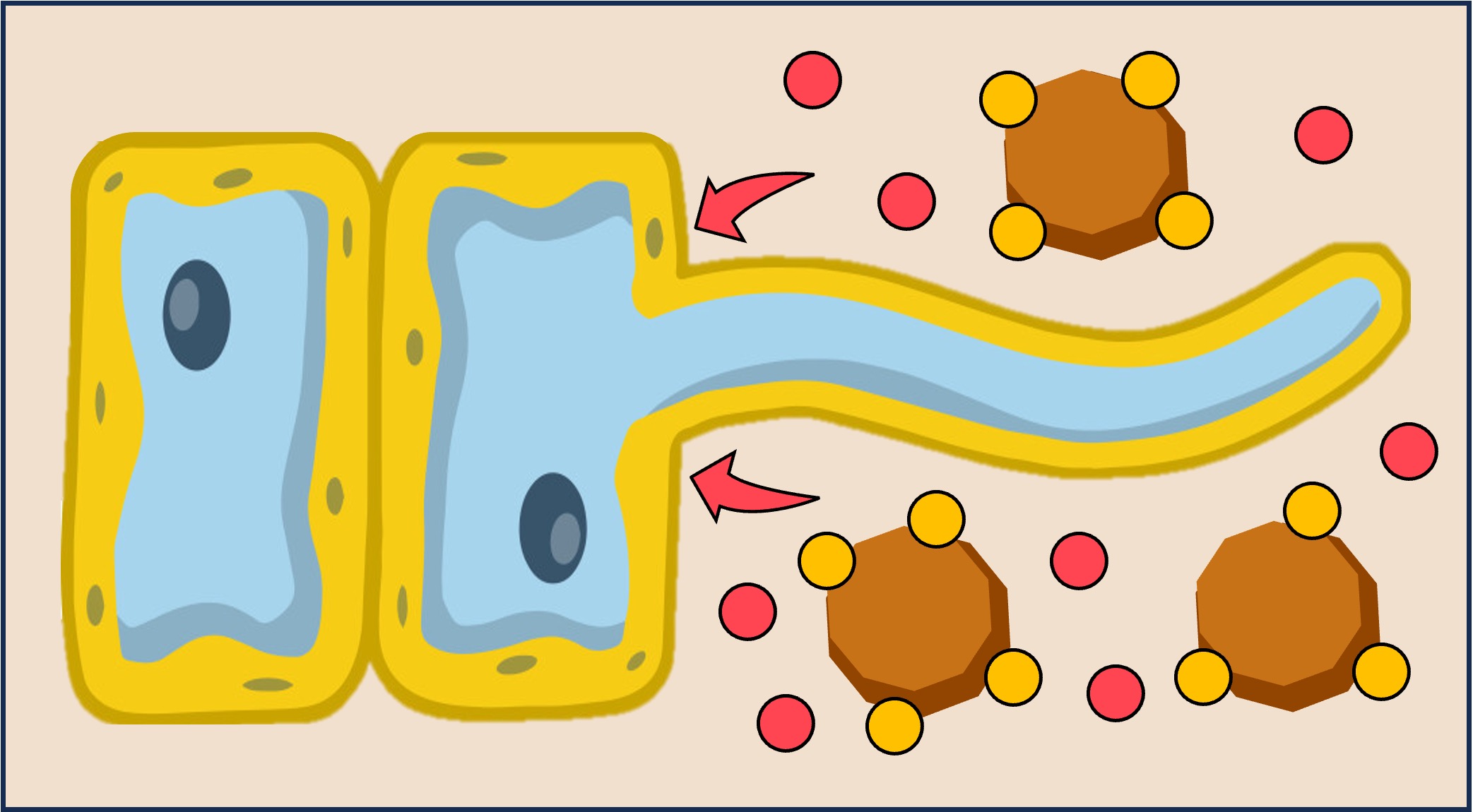

Xylem Transport
Plants can manipulate the solute potential and pressure potential within tissues in order to establish water potentials that facilitate movement
-
Transpiration involves the generation of negative hydrostatic pressures within the leaves (via evaporation) and positive hydrostatic pressures within the roots
-
This pressure differential creates tension within the xylem vessels that allow water to be transported against gravity via capillary action
Root Pressure
Root pressure is a positive pressure potential within the root tissue that can generate water movement up the xylem
-
Root pressure can allow water to move up the stem when transpiration is insufficient (e.g. when humidity is high or before bud burst in spring)
Plants control the uptake of water from the soil by regulating the movement of mineral ions via indirect active transport
-
Root cells contain proton pumps that actively expel H+ ions (stored in the vacuole of root cells) into the surrounding soil
-
The H+ ions displace the positively charged mineral ions from the clay, allowing them to diffuse into the root along a gradient
-
Water will follow the mineral ions into the root via osmosis – with the rate of water uptake regulated by water channels (aquaporins) on the root cell membrane
Mineral Uptake in Roots

Protons are pumped into the soil

Ions displaced to diffuse into root
Regulating Water Uptake
Once inside the root, water will move towards the xylem via one of two pathways (symplastic or apoplastic)
-
In the symplastic pathway, water moves continuously through the cytoplasm of root cells (connected via plasmodesmata)
-
In the apoplastic pathway, the water is water moved through the cell walls of the intervening root cells (more rapid)
The endodermal cells that separate the root from the xylem contain a waterproof band of suberin within the cell walls
-
This is called the Casparian strip and prevents further water movement via the apoplastic pathway
-
The water is forced into the symplastic pathway and must therefore cross cell membranes to access the xylem
-
This allows the plant to regulate the uptake of water into the xylem vessels and control root pressure
Water Movement in Root Tissue






